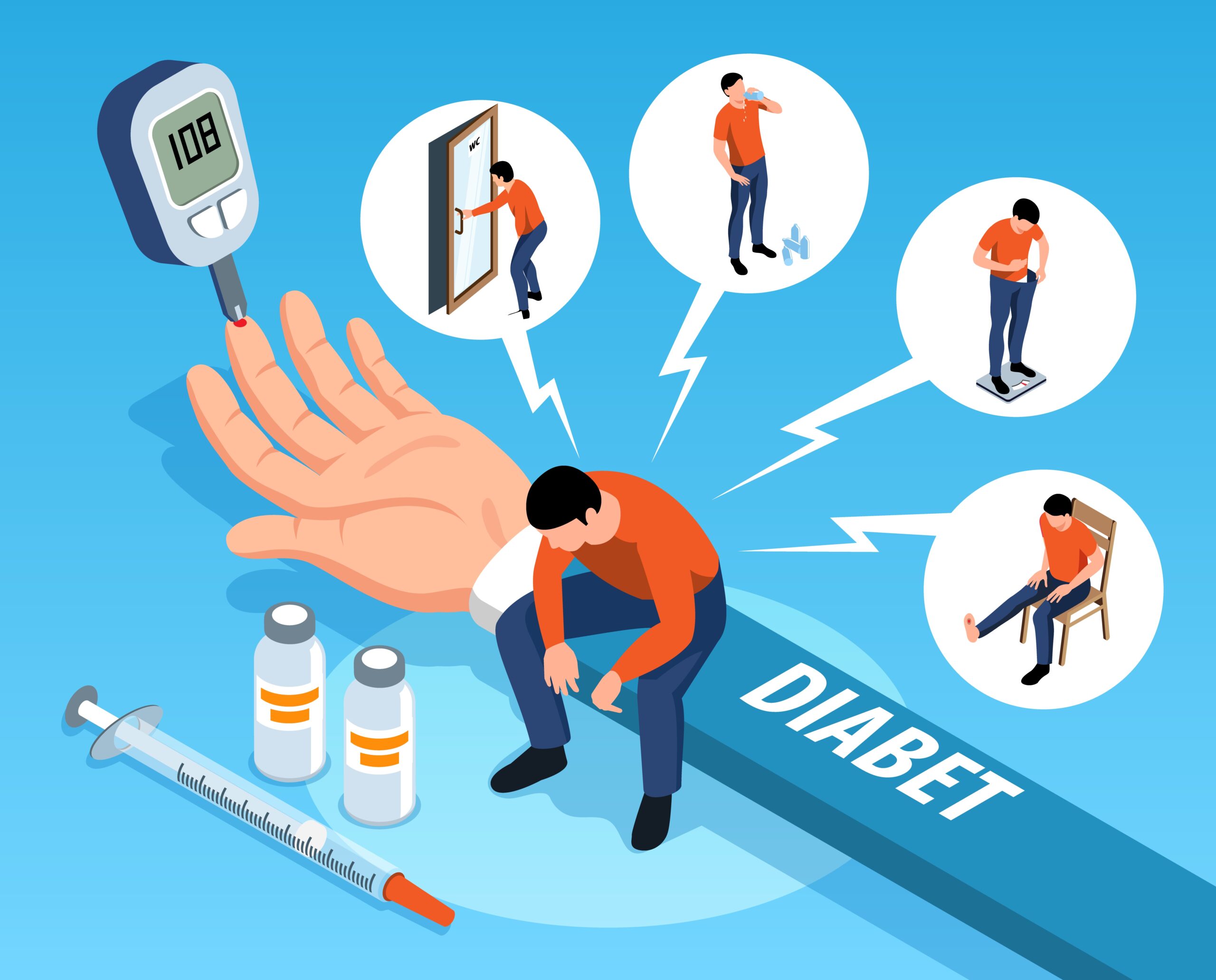Diabetes has become one of the most common lifestyle diseases today, yet there is an abundance of misinformation surrounding it. These myths not only create confusion but also lead to improper management and unnecessary stigmatization of people with diabetes. Let’s debunk some of the most common myths about diabetes and uncover the truth behind them.
Myth #1: People with Diabetes Can’t Eat Sugar
Fact: Diabetes is often referred to as a “sugar disease,” but this doesn’t mean patients must eliminate sugar entirely from their diet. Sugar is a form of glucose, which is also present in foods like rice, bread, and potatoes.
For people with diabetes, managing calorie intake is more important than completely avoiding sugar. If blood sugar levels are well-controlled, consuming small amounts of sugar is generally safe.
Myth #2: Type 2 Diabetes Isn’t Dangerous
Fact: A widely held misconception is that Type 2 diabetes is less serious than Type 1 diabetes. Both types, if not managed properly, can lead to severe complications like heart disease, kidney failure, and nerve damage. Timely diagnosis and proper care are essential for both forms.
Myth #3: Only Overweight People Get Diabetes
Fact: While obesity is a significant risk factor, it’s not the only one. Thin or underweight people can also develop diabetes due to genetic predisposition, poor diet, or other underlying health conditions. Body size is not the sole indicator of a person’s health.
Myth #4: All Diabetics Go Blind
Fact: Diabetes can lead to eye complications, such as diabetic retinopathy, which can cause blindness if unmanaged. However, regular eye check-ups and maintaining controlled blood sugar levels can significantly reduce the risk. Blindness is not inevitable for people with diabetes.
Myth #5: Diabetics Are Bad Drivers
Fact: This myth stems from the risk of hypoglycemia (low blood sugar), which can temporarily impair focus or motor control. While people experiencing hypoglycemia should avoid driving, diabetics with well-managed blood sugar levels can drive just as safely as anyone else.
Myth #6: Diabetics Should Avoid Physical Activity
Fact: On the contrary, regular exercise is vital for people with diabetes as it helps regulate blood sugar levels and improves overall health. Diabetics are encouraged to engage in physical activities suitable for their fitness levels while monitoring their glucose levels to avoid hypoglycemia.
Myth #7: Diabetics Get Sick More Often
Fact: Diabetes does not directly weaken the immune system. Diabetics are not more prone to catching colds, flu, or other infections than anyone else. However, managing these illnesses might require additional care for those with diabetes.
Myth #8: Diabetes Is Contagious
Fact: Diabetes is a non-communicable disease and cannot spread through physical contact, sharing food, or any form of social interaction. It may run in families due to genetic factors, but it cannot be “caught” from someone.
The Takeaway
Misinformation about diabetes can lead to unnecessary fear and stigma, both for patients and their families. Understanding the facts is essential for proper disease management and eliminating discrimination. Share this information with as many people as possible to help combat these harmful myths.
Read More: You Won’t Believe the Benefits of These 7 Best Indian Superfoods!







Leave a Reply